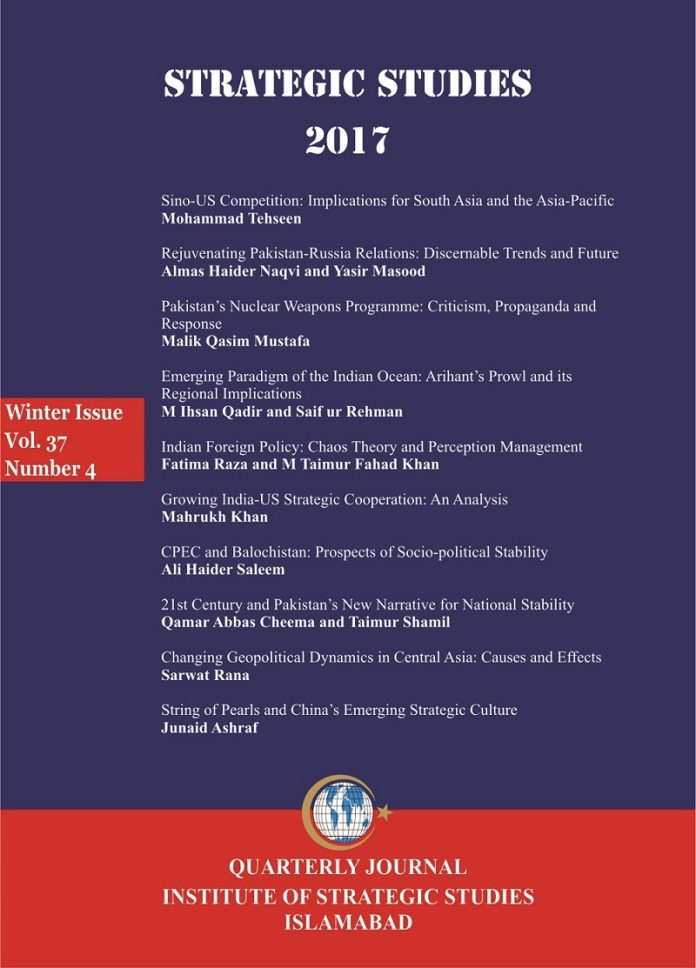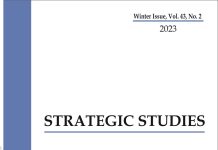Abstract
Throughout the course of history, states and non-state actors have developed themes, values and ideas to promote their visions. Such deliberate and well-constructed ideologies are termed as narratives either to face the challenges or to run a rules-based national and international system while looking their goals and power apparatus. A national narrative is constructed in a way that identity, history, ideology, geography, culture, foreign policy and other national discourses become components of it. Pakistan, since its independence in 1947, has been in search of a comprehensive narrative that should suit the fabric of the state. The existing narrative has been unresponsive to the needs of people and becomes outdated for several reasons. A new narrative for identity construction, political maturity, educational growth, strong security, economic prosperity, good governance, religious reorientation, innovative skills, media maturity and ethnic unity is required which can establish a new societal architecture for a strong and resilient state and society. Building of such a new narrative is a strategic imperative which could bring national stability in Pakistan in the 21st century.














